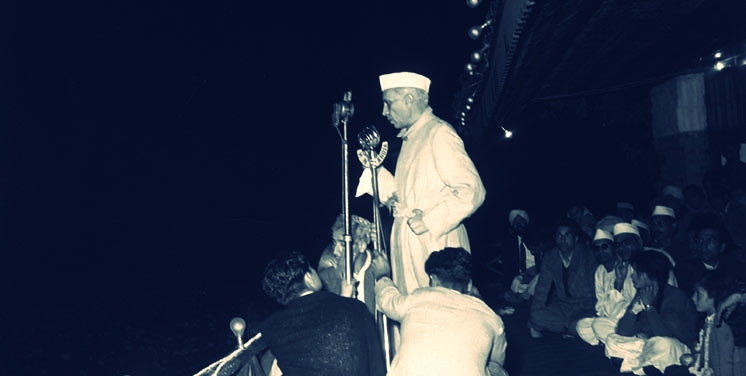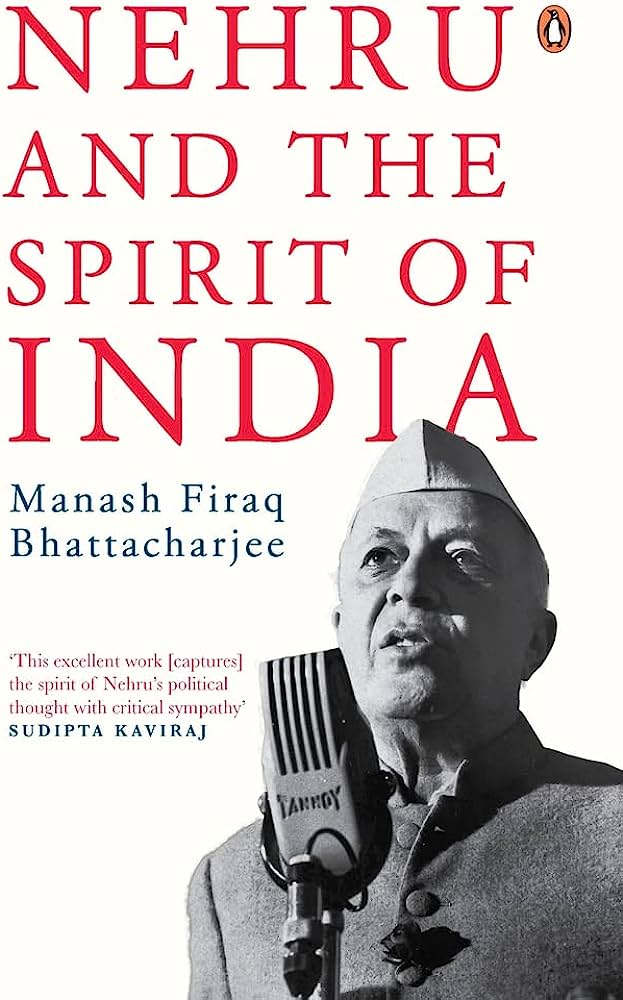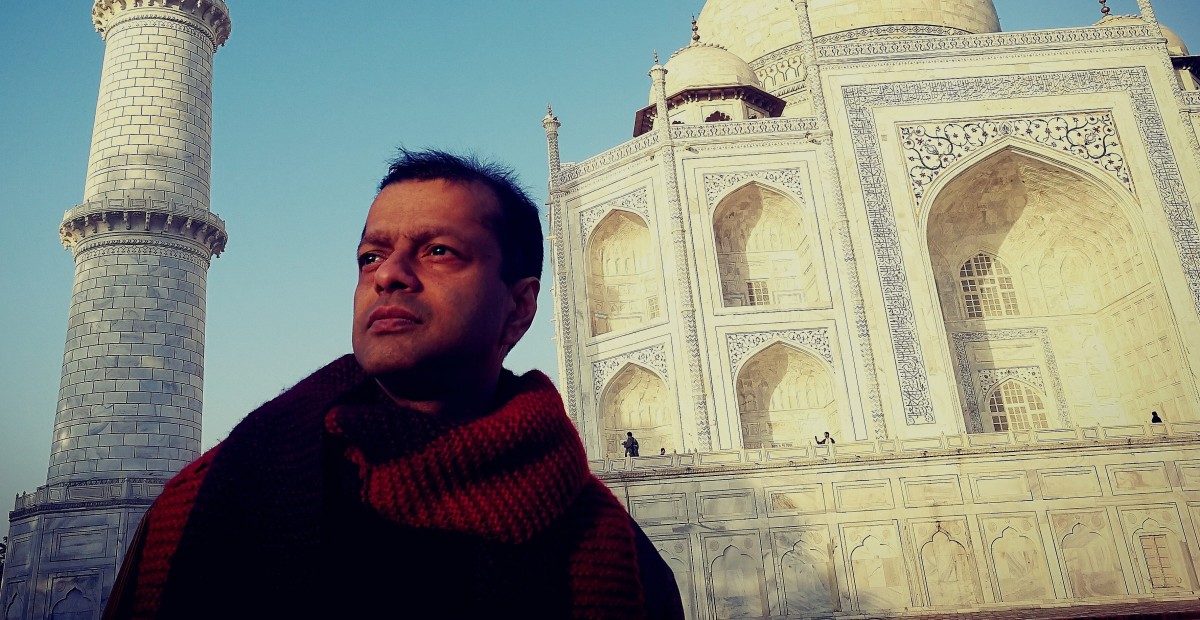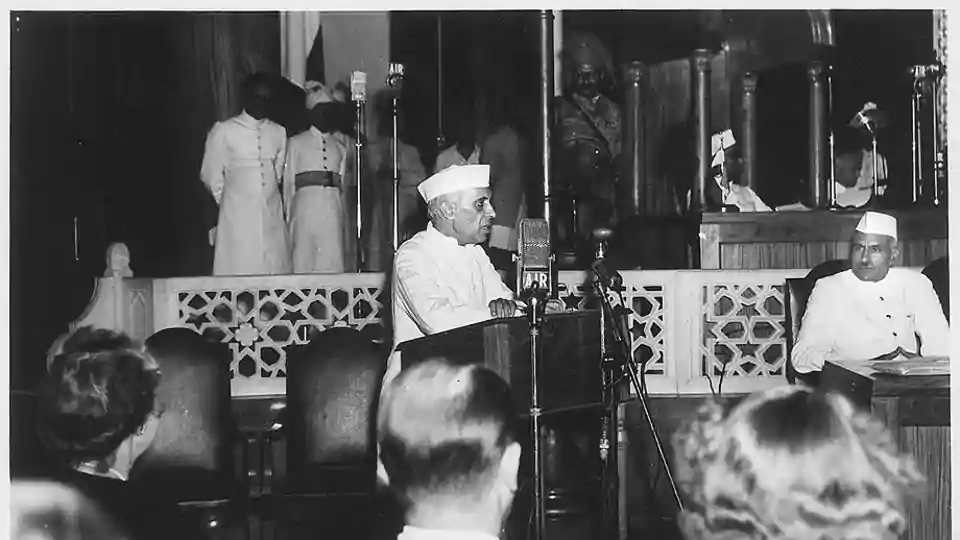A Relook at Jawaharlal Nehru
Manash Firaq Bhattacharjee’s book Nehru and the Spirit of India is a very welcome addition to ‘Nehruana’ at a time when he is demonised in India with crass, low-level propaganda indulged in by the Hindu-majoritarian forces that rule the country today. Their tallest leaders provide the lead in spreading misinformation and even plain lies. The colonial and neo-colonial critique of Nehru is no match for what is dished out by their allies and offspring, the majoritarian communal forces in India.
This is a dense book with many deep insights into Nehru as a brilliant original thinker and statesman. Bhattacharjee draws from various disciplines – philosophy, history, politics, literature and memoirs – to make his arguments. It is difficult in a review to bring out all the insights offered but I shall try to highlight some. The author also makes a critique of Indian nationalists and what he calls ‘secular majoritarianism’ and I shall have my somewhat sharp response to that too, which I am sure the young scholar will take in the right spirit.
To me the deepest insight in Bhattacharjee’s understanding of Nehru lies in his looking at Nehru’s doubts, his ambivalence, openness and engagement with apparently contradictory positions not as his weakness or vacillating nature but as his strength. He is critical of people like Partha Chatterjee who dismiss Nehru’s absolutely outstanding work, The Discovery of India, written in jail in the 1940s, (a work which forms the core of Bhattacharjee’s analysis of Nehru’s ideas) as a book of ‘rambling, bristling with the most obvious contradictions.’ (p. 181)
As Bhattacharjee argues in elegant prose: ‘The idea of liberty needs to be reconciled with the presence of contradictions. No idea or truth-claim can justify the sacrifice of human lives. It would mean the barbarism of truth. Ethics provokes us to think of freedom without violence.
'Nehru did not sit on horseback with sword in hand, and rush towards the windmills of history thinking they were giants he had to exterminate. He did not hallucinate from the desire to rid the world of all its ills and create a gigantic prison in the name of paradise’ (p.21)
Bhattacharjee could have noted that this is where Nehru learns from Gandhiji. The sharp shift and progress between Nehru’s position in the Autobiography, written in the 1930s (again from prison) under the deep influence of what Professor Bipan Chandra called ‘Stalin-Marxism,’ where he talked of class war and the inevitability of the need to use force and the far more nuanced and complex position taken in Discovery, amply illustrates that. For Gandhiji, his deep conviction on non-violence did not emerge from the fact that it was a brilliant tactic to fight the British, which of course it was, but from his philosophical position that nobody could make the claim of having arrived at ‘transcendental truth’ or absolute truth. His belief in the possibility of multiple truths and multiple paths to the seeking of truth would not allow for violence against anyone. The Enlightenment project emerging from Europe often faltered on this ground where the notion of possessing the ultimate truth justified mass killings by revolutionary movements (in the name of democracy and the people) thus negating a critical aspect of democracy, every human being’s right to differ.
Attention must be drawn here to Tadd Fernée work, Enlightenment and Violence: Modernity and Nation Making, where he compares the European Enlightenment project with the Indian, Turkish and Iranian efforts at transition to modernity, with a focus on the Indian National Movement under Gandhiji’s leadership with its ‘Ethic of Reconciliation as Mass Movement’ as well as the ‘Nehruvian effort after independence’ at drawing on this heritage, towards an ‘Ethic of Reconciliation in Nation-Making’. His conclusion is that the Indian experiment at transition to modernity without violence remained much truer to the Enlightenment objectives.

Jawaharlal Nehru in Kashmir in May 1948. Photo: Photo Division, MIB, Public domain, via Wikimedia Commons
Nehru’s Discovery was to see in the history of Indian civilisation the ability to live with difference, accommodate, adjust, synthesise, change and move on. (An aspect which Bhattacharjee notes and explores ably. More on it a little later.) Nehru emphasises the notion of alternate truths or multiple truths in Indian tradition from ancient times onwards through the medieval period. He also notes how for Gandhiji even religion was a ‘search after truth through nonviolent means.’ Gandhiji was not taking the position that God is truth, and therefore, even atheist could search for truth. Nehru quotes Gandhiji, ‘A man may not believe in God and still call himself a Hindu. Hinduism (for him) is a relentless pursuit after truth…. Truth is God. Denial of God we have known. Denial of truth we have not known.’
Bhattacharjee has done us a great favour by quoting extensively (pp. 16, 18, 81) from Octavio Paz, the great Mexican poet, thinker, diplomat and Nobel Laureate, who was also Mexican ambassador to India in Nehru’s time, showing how he very sensitively comprehended what Nehru had ‘discovered’ for himself from Indian tradition and Gandhiji, and very importantly, brilliantly interpreted Nehru and his supposed contradictions. It is well worth repeating them here, if for no other reason but to show how great contemporaries of Nehru saw him in contrast to scholars whom I would characterise as Eurocentric if not colonial and of course, our current half educated, communal, fake ‘nationalists’ in India.
In a speech delivered in 1966, Paz says:
‘It is remarkable that Nehru, in spite of his mainly being a political leader, did not fall into the temptation of suppressing the contradictions of history by brute force…. [It] is unique in our world of fanatical Manicheans (those who see things only in black and white) and hangmen masked as philosophers of history. He did not pretend to embody either the supreme good or the absolute truth but human liberty: man and his contradictions…. He was faithful to his contradictions and for this very reason he neither killed others nor mutilated himself.’
Again, he says very profoundly and with a deep understanding of Nehru:
‘In contrast to the majority of the political leaders of this century. Nehru did not believe that he had the key to history in his hands. Because of this he did not stain his country nor the world with blood. For the same reason, he neither offers us prefabricated solutions to the conflicts between industry and poetry, science and spiritual needs, technology and private life. He thought modern society could find an answer to these antagonisms by itself. The alternative was spiritual and physical death.’

Manash Firaq Bhattacharjee
Nehru and the Spirit of India
Penguin, 2022
To return to the issue of how Nehru understood history, particularly Indian history. Bhattacharjee, particularly in a chapter titled History and the ‘Roots of the Present’, and also elsewhere, outlines very ably Nehru’s very complex and sophisticated approach to history and historiography – both colonial and nationalist historiography. It is truly amazing that Nehru writing his Discovery of India from prison in the 1940s in the middle of an extremely active political life could anticipate by several decades what celebrated scholars of history and social sciences were to argue later.
For example, Nehru critiques the colonial periodisation (adopted later by the communalists in India) of Ancient, Medieval and Modern Indian history as Hindu, Muslim and British period as being superficial, focusing only on the top, the ruler’s religion and not ‘the essential changes in the political, economic and cultural development of the Indian people’ which witnessed a lot of continuity as well as change, significant breaks and equally significant synthesis occurring over time. He rejects the notion of the ‘the laws of history’ not applying to India, ‘the absence of history’ in India, or it being a changeless society, characterised in academic discourse as ‘the Asiatic Mode of Production’. Scholars like Romila Thapar, Irfan Habib, Bipan Chandra and B.D. Chattopadhyay have in later years written extensively on this theme taking forward Nehru’s position.
The lessons that Nehru draws from Indian history in imagining India’s future as a modern democratic country based on enlightenment values, ‘the Idea of India’, are extremely significant. He begins with the Indus Valley Civilisation which he calls a predominantly a secular civilisation where the religious, though present, did not dominate. He highlights the dialogical tradition from ancient times where difference was accepted and even welcomed. He highlights the questioning spirit even in the creation hymn of the Rig Veda, the openness and reasoning in the Upanishads, the absence of a monopoly in Truth in the Epics, Buddha talking of ‘many thousands of other truths’ apart from his own teachings, the privileging of argument and debate in the tradition of learning in ancient Benaras, and so on. This tradition of openness and debate, Nehru argues, was carried on in exemplary manner by emperor Akbar and others.
Nehru also highlights the attempts at mitigating religious, caste and cultural difference by the Bhakti/Sufi traditions and talks of Kabir, Guru Nanak and Amir Khusrau in that context. He points out the intermixing of cultures and the creation of a composite culture in music, language, literature and poetry and talks of the unique phenomenon of Amir Khusrau composing songs in the 13th/14th century in a dialect of Hindi which were sung for over 600 years ‘till today’ without a change of words, by millions of people across religious and caste divides! The amazing capacity of the Indian civilization to create a synthesis is noted by Nehru, when he says that since the Aryans came from C. Asia, there came the Iranians, Greeks, Parthians, Bactrians, Scythians, Huns, Turks (pre-Islam), early Christians, Jews, Zoroastrians and later Muslims, ‘they came, made a difference, and were absorbed’. (Discovery, p.69) In a beautiful imagery capturing the inclusive, synthesising process in Indian history, Nehru described India to be ‘like some ancient palimpsest on which layer upon layer of thought and reverie had been inscribed, and yet no succeeding layer had completely hidden or erased what had been written previously.’ (Discovery, p. 51)
Scholars like Irfan Habib and Romila Thapar have validated much of what Nehru drew from Ancient to Medieval history, from Ashoka to Akbar. Amartya Sen notably in his major works the Idea of Justice (London, 2009) and The Argumentative Indian: Writings on Indian History, Culture and Identity (London, 2005) focuses on alternate routes to modernity apart from the European ‘enlightenment’ experience and draws from the Indian example. He draws conclusions similar to that of Nehru from Indian history from the ancient past though the medieval period. He too focuses on Ashoka and Akbar, talks of the dialogical tradition, the questioning spirit, the openness to reason and rationality, the ability to live with difference and move towards a synthesis in the ancient and medieval past in India. I have above already referred to Tadd Fernée’s important work in this regard.
Bhattacharjee does very well early on in the book taking on the celebrated editor of The New Left Review, Perry Anderson who using, what Bhattacharjee aptly calls, ‘British high-school rhetoric’, ridicules Nehru’s Discovery of India, in a series of articles published in the London Review of Books (2012) later put together by a Left wing publisher in India as Indian Ideology (New Delhi, 2012) Anderson unlike Nehru adopts the colonial/communal periodisation of Indian history dividing it on religious lines, Buddhist, Hindu and Muslim, seeing ‘no political or cultural connexion between’ them. Bhattacharjee notes how Anderson sees the ‘Idea of India as essentially European, not a local invention’ and how he does a ‘bulldozer-critique of Indian nationalism, Gandhi and Nehru’.

Author Manash Bhattacharjee. Credit: Richa Burman
I take this opportunity to reproduce briefly my own critique of Anderson which I made elsewhere : ‘Anderson… rubbished Indian nationalism and the Indian nation state, demonising every nationalist icon that emerged in India on the secular platform of the Indian National Congress (INC), from Mahatma Gandhi and Maulana Azad to Jawaharlal Nehru, using essentially the tools of analysis perfected by the colonial Indian state! Marxism is clearly no guarantee against being infected by the colonial/Eurocentric outlook. Using the colonial paradigm to see Indian history and society as one where Indian society was and could only be mobilised on the basis of ‘primordial identities’ of religion and caste and not around ‘modern’, ‘western’ notions of class and nation, Anderson, like the British officials, denied any legitimacy to the category of nation and the national movement in India, describing the chief vehicle of Indian nationalism at that time the Indian national Congress as a caste Hindu party. He again, following the colonial paradigm, ends up privileging narrow caste and religious identities even when they were articulated in communal or casteist, divisive, separatist and often fundamentalist and even fascist ways.
'It is not surprising therefore that Anderson should reiterate the Muslim League argument, promoted avidly by the colonial state, that since Hindus are in a majority in India, universal franchise would deliver power to the Hindus represented by the Indian National Congress. (An argument used by the colonial state to deny the elective principle to the Indians, as demanded by the Congress.) Anderson therefore applauds ‘the British (who) realised the dangers of this in India and … granted separate electorates as a limited safeguard for Muslim minorities.’
Anderson would have been well advised to heed the warning of the British Marxist W.C. Smith in his pioneering work Modern Islam in India, 1946, that while choosing categories of analysis for India (or other non-Western societies) it is important to try them out on Western societies as well. Using the logic Anderson applies for India, it would appear that in Britain universal franchise has meant the Protestant majority rules over the Catholic minority and other smaller groups such as the Jews, Muslims, Hindus, people of African origin, etc., and therefore a separate electorate must be introduced for non-Protestant minority groups. A prescription Anderson surely does not recommend. Different standards are used for India based on a colonial notion about the colonial “child” people if not the “barbarians” who could only be mobilised around primordial identities of religion, caste, tribe, etc., and not around, notions of nation and class.
The pernicious concept of separate electorates introduced by the British divided Indian society irreparably at the very initial stages of modern electoral politics. Inherent in it was the two (or more) nation theory. Under this system, people of a particular religion would vote for and elect a member of only their religion. The candidates would have to appeal only to their co-religionists and not to the whole society as they would have had to if they were representing a common constituency, even if the seat was reserved for a particular religious community. It is for this reason that the Congress opposed separate electorates for Muslims and other minorities and later for the ‘Untouchables’, with Gandhiji virtually staking his life against it. It was not because, as Perry Anderson would have us believe, that the Congress, including its tallest leaders like Gandhi and Nehru, essentially represented the upper caste Hindus and refused to accommodate the Muslims and the untouchables.’
I have taken the liberty of this longish digression to discuss Anderson as it leads me to raising some questions regarding Bhattacharjee’s own understanding of Indian nationalism and communalism and his treatment of Nehru on the ‘minorities’ question.
Let me first state at some length the positions taken by Bhattacharjee before I comment on them.
1) ‘…Identity politics breaks the norm of (majoritarian) consensus.’ (p.88)
2) He appreciatively quotes the rather colonial interpretation of Shabnam Tejani: ‘In the two decades before 1947…communalism was the term that stood in for the politics of religious minorities, especially that of the Muslim minority’ (p.89)
3) ‘Political rights demanded by minorities is dubbed communal from two anxieties, one being the liberal anxiety against identity-based claims, which often fuses surreptitiously with a majoritarian reluctance to share power…. Mainstream nationalists during the anticolonial movement seemed to believe that if a minority asserts a political identity, it can only be to the detriment of the nation.’ (p.89) This line gets repeated in the text hopefully by error and not to emphasise the point!
4) ‘The important question to ask is: Why did the leaders of the Congress, the Muslim League, the Hindu Mahasabha and others allow the precipitation of political differences to endanger the lives of millions? Because in politics, let it be said as harshly as possible, the lives of ordinary people do not matter.’ (p.90)
5) For ‘liberal secularists … identity politics is narrowly communal by definition and design. This unthinking position leads to a poor and narrow understanding of how a minority is expected to respond to a political crisis that affects the community. To pigeonhole the response of a minority community against abrasive majoritarianism, where it must maintain a language perceived (and judged) as either communal or national, is to erect a communal/national binary. It has an anti-minoritarian streak (since the late 1920s) that can be termed secular majoritarianism.’
Bhattacharjee grossly misreads the ideology and the actual history of Indian national movement when he sees the nationalists as seeing only minority identity politics as ‘communal’, emerging ‘surreptitiously’ from a ‘majoritarian reluctance to share power.’ Nehru as early as 1930s is severely critical of majoritarian identity politics, Hindu communalism, now often wrongly called Hindu Nationalism. In his autobiography written in early 1930s, he said, majority communalism easily ‘masquerades under a nationalist cloak’. ‘Hindu nationalism’, he said, is ‘but another name for communalism’, a phenomenon which he said represented ‘the betrayal of the freedom struggle, denial of every vestige of nationalism, suppressive of every manly instinct in the Hindus.’
The current masculine, aggressive, alpha-male nationalism that is being paraded around by the Hindutva forces was squarely characterised by Nehru and the Indian national movement as ‘anti-national.’ He said in 1933 ‘I still hold that the activities of Hindu communal organisations, including the Mahasabha, have been communal, anti-national and reactionary’. Nehru had in fact anticipated that fascism in India would take the form of majority communalism. He said, ‘it must always be remembered that the whole mentality of the R.S.S. is a fascist mentality. Therefore, their activities have to be closely watched.’ Majority communalism, Nehru argued, ‘could disguise itself as nationalism’ and was in fact ‘the Indian version of fascism … deserving of the severest condemnation.’

Jawaharlal Nehru addresses the midnight session of the Constituent Assembly of India in New Delhi on August 15, 1947. Photo: Wikimedia commons
Nehru was empathetic to the minority condition and their fears when he said, ‘Honest communalism is fear…. To some extent this fear is justified, or is at least understandable, in a minority community. We see this fear overshadowing the communal sky in India as a whole so far as Muslims are concerned; we see it as an equally potent force in the Punjab and Sind so far as the Hindus are concerned, and in the Punjab, the Sikhs.’ But this did not lead him to be soft towards, leave alone support, minority communalism which he thought was anti-national just like majority communalism was. More importantly, he believed that certainly the answer to majority communalism could not be minority communalism. He said famously and very wisely, again in the 1930s ‘One communalism does not end the other, each feeds on the other and both fatten.’ Minority ‘identity politics’ does not break ‘the norm of (majoritarian) consensus’ as Bhattacharjee argues it encourages the growth of majoritarian identity politics. Indeed, softness towards minority communalism made the growth of majority communalism much easier. In fact the Left/ ‘liberal secularists’ that Bhattacharjee is so critical of for condemning minority identity politics, instead of being equally critical of minority communalism, as they were of majority communalism, at times exhibited certain softness towards it making it a major plank of the majority communalists in extending their influence and painting the secularists as ‘pseudo-secularists’ or ‘appeasers’ of minority communalism.
The tallest leaders of the Indian national movement led by Gandhiji and Nehru put their lives at stake to protect minority rights, enable the religious minorities to have equal citizenship rights in the Indian republic but refused to do so by pandering to minority identity politics as it would stand against the whole republican idea of citizenship. It is an absolute canard to describe the Indian nationalist position as ‘secular majoritarianism’ with ‘an anti-minoritarian streak (since the late 1920s)’ as Bhattacharjee does. The national movement was correct in erecting a ‘secular/national’ binary. Communal politics by definition broke up the ‘nation’ in a multi-religious country. That is why the colonial state constantly encouraged and supported communalism of all varieties and it is a historical fact that the communal forces who did politics of religious identity, whether they be of minority or majority, allied with the colonial state and saw the Congress, which spoke of a nation where religion would not determine politics, as the chief enemy. Empowering politics based on religion was the colonial project and could not be that of the nationalists and ought not be that of such a fine scholar of Nehru as Bhattacharjee.
Overwhelming sections of the minorities in India have fortunately gone with the republican idea of citizenship, as the massive anti-CAA protests, waving the Indian constitution and portraits of Gandhi, Nehru, Ambedkar and Bhagat Singh, showed. There are sections in India which are whipping up minority religious sentiments and politics based on that which is hugely welcomed (and some say even funded) by the majority communalists as it provides them just the cannon fodder they need. Let us see the danger these forces represent rather than provide an intellectual justification for them.
Bhattacharjee does grave injustice when he groups ‘the Congress, the Muslim League, the Hindu Mahasabha’ together and accuses them of ‘allow(ing) the precipitation of political differences to endanger the lives of millions? Because in politics, let it be said as harshly as possible, the lives of ordinary people do not matter.’ How similar he sounds to Perry Anderson who does not hold the colonial state or the Muslim League or RSS responsible for the partition of the country, but it was the Indian National Congress ‘whose “persistent … claim to speak for the whole country…precipitated the crisis and made partition inevitable.’ The demonisation of the chief vehicle of the anti-imperialist movement does not end there, Anderson adds that not only was the Congress responsible for partition, it ‘acted in a way that ensured it would take the cruellest form, with the worst human consequences’! How similar to our current dispensation who hold Gandhi and Nehru responsible for partition and not the hate ideology their ancestors spread that led to the murder of the Mahatma. The saving grace is that Bhattacharjee includes the Muslim League and Hindu Mahasabha among his list of villains along with Congress for whom ‘the lives of ordinary people do not matter’. Gandhiji and Nehru must be turning in their graves at this description of their life long effort. Let me remind Bhattacharjee of his own quote from Paz, Nehru ‘did not stain his country nor the world with blood.’
Perhaps a closer look at history and historians of Modern India could have saved Bhattacharjee from such conclusions. For a starter, Bipan Chandra’s classic Rise and Growth of Communalism in Modern India and his seminal articles on Gandhi, Nehru and the Indian National Movement in Writings of Bipan Chandra: The Making of Modern India: From Marx to Gandhi need to be added to both Anderson and Bhattacharjee’s reading list.
Aditya Mukherjee retired as Professor of Contemporary History, Jawaharlal Nehru University.
This article went live on June seventeenth, two thousand twenty three, at zero minutes past seven in the morning.The Wire is now on WhatsApp. Follow our channel for sharp analysis and opinions on the latest developments.




